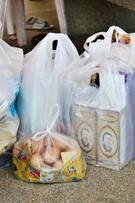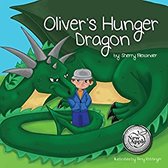 Photo by roberta errani
Photo by roberta errani People tend to take the most convenient path even though it may have bad consequences since the consequences don’t immediately or directly affect the person. This includes the usage of single-use plastic bags. Using them has bad consequences, but these consequences don't immediately or directly affect us. For their bad impact they urgently need to be banned. This means a full ban of their usage and not just a tax. People who are against the ban of plastic bags may be clinging to reasons such as your freedom of choice and plastic bags are not causing the environment harm, but instead it is our misuse of them. However, are these concerns unwarranted? Is it feasible that these concerns are void and outweighed by the benefits of a ban on plastic bags? Anyone around the world who uses plastic bags should believe in and support a ban on plastic bags; humans are in danger from plastic bags, they cause environmental damage, are non-biodegradable, create great wastes when being made, and it harms and kills animals; for these reasons we must make all types of plastic bags banned worldwide.
To commence, individuals who use plastic bags should make the switch to reusable bags, for the risk they cause to human safety. Debatewise, a debating website, looked into both sides of why plastic bags should be banned or not banned. One reason some people may be refuting the ban is they want freedom of choice, [w]hy should we not be free to chose to take a plastic bag? As with everything else there must be a market price for plastic bags that includes the cost of making them and the cost to the environment in the monetary cost (therefore providing revenue to clear up the leftover plastic bags), at this particular price there will still be some people who are willing to pay the cost for the convenience of just being able to pick one up with the shopping, or if a shopper has forgotten to bring their own bags with them they should be able to buy plastic bags at the shop. There is no need for an outright ban on plastic bags.
For example, if one person stopped using plastic bags for the harm they caused and another did not. The person who stopped using single-use bags could be killed by the other’s ill choices. Yes, your plastic bags you thought only hurt other creatures can kill you. Britta and Qamar, two research scientists for Curious Kids, worked on and published an article on August 2nd regarding how plastic bags harm the environment. This quote was uncovered in the article, “Many people don’t realise that plastic bags can also cause flooding. Previously in Ghana (in West Africa), plastic bags blocked storm water drains during a big rainstorm. This caused flooding so bad that people were killed.” This may come as a shock to anyone who does not believe in the ban of plastic bags, but they endanger human beings. For the threat to our safety and others, plastic bags must be banned.
In addition, the input of a ban on plastic bags is necessary for the harm they cause on the environment. Plastic bags are an eyesore to us on land and smother plants on the sea bed. Britta and Qamar wrote this, “Plastic bags can also smother corals and other seabed communities”...“On land, plastic bags are an eyesore. They get stuck in trees, along fence lines, or as litter at our parks and beaches.” Plastic bags are killing essential plants on the seafloor and are atrocious to look at when discarded in nature. An example of the harm they cause the oceans is the Great Pacific Garbage Patch. Akpan, a digital science producer for PBS NewsHour and is co-creator to ScienceScope, wrote, “617,000 square miles...” This is the area of the Great Pacific Garbage Patch. Which from an article posted on the February 11, 2020 from The Ocean Cleanup is the size of …“an area twice the size of Texas or three times the size of France.” The National Geographic Society posted on the ninth of October in 2012 that, “In reality, these patches are almost entirely made up of tiny bits of plastic, called microplastics. Microplastics can't always be seen by the naked eye. Even satellite imagery doesn't show a giant patch of garbage. The microplastics of the Great Pacific Garbage Patch can simply make the water look like a cloudy soup”...“The Great Pacific Garbage Patch is a collection of marine debris in the North Pacific Ocean. Marine debris is litter that ends up in oceans, seas, and other large bodies of water.” This example was of the Great Pacific Garbage Patch, which is only one of the larger patches of garbage in the oceans. These patches are, as said in the quote above, made mostly of micro plastics. Plastic bags cause harm to the seabed plants and on dry land can be eyesores to humans. Due to the endangerment to the environment, it is essential to ban plastic bags.
Connecting to the reason above, plastic bags urgently need to be banned for being non-biodegradable. Plastic bags cause harm to the environment, but the biggest concern is once they get there, they will not go away for a long time. From the Center for Biological Diversity comes a post, entitled 10 Facts About Single-use Plastic Bags, states, “It takes 500 (or more) years for a plastic bag to degrade in a landfill. Unfortunately the bags don't break down completely but instead photo-degrade, becoming microplastics that absorb toxins and continue to pollute the environment.” From this article, once a plastic bag gets into the environment, there seems no end when it will stop causing harm. This is a major problem. From Debatewise this piece of information comes, “An estimated 17 billion plastic bags are given to British consumers. We do not need this many plastic bags in the world. The pollution caused by their creation alone is enough to warrant a ban on their manufacture and their use. In addition, they do not degrade well in our rubbish dumps, so they will remain on this planet forever more. We cannot have this accumulation of plastic bags and the only way forward is to ban their distribution and use.” Having so many plastic bags produced and distributed each year is madness, and there being no end to their harm seems reason enough to ban plastic bags.
Trailing, single-use plastic bags should be banned across the globe for their waste when being made. This refutes and counteracts the claim from Debatewise of, “We all have to USE the plastic bags instead of MISUSING it. All of us throw the used plastic bags on roads and other places. Infrastructure needs improvement to recycle plastic bags. plastic bags can be totally recycled. If we are not using plastic bags then we’ll rely on other resources which are paper bags, reality check : production paper bags cannot fulfill the requirements of today’s world.” This reason does have sense when talking about it being in oceans, but the people who may be latched on to this reason have not looked into the strain plastic bags have on the environment before reaching the consumer. The making of plastic bags is a complete waste. When counting what goes into plastic bags you must include both the compounds that make up the plastic bags and the ones used to put those compounds together. From Debatewise comes this statement, “Plastic bag production uses almost 10 percent of the world’s annual oil supply. Only 3.5 percent of this number are recycled. This means that much of the planet’s precious natural resources are being used to produce plastic bags that many of us maintain are unnecessary. The chemicals and compounds that go into making plastic bags could also be utilized in a far more effective manner.” This means infrastructure and guiding the use of the plastic bags will not completely fix the problem of plastic bags. Showing the most effective way to protect the environment from plastic bags is to ban them in all types worldwide.
Finally, plastic bags most definitely need to be banned for the harm they cause animals. Plastic bags directly harm the animals, not just their habitat. Uncovered in Curious Kids article “Turtles (and other animals) may mistake plastic bags for food. Turtles like to eat jellyfish, and we think turtles eat the plastic bags because they resemble jellyfish. When turtles eat plastic, it can block their intestinal system (their guts). Therefore, they can no longer eat properly, which can kill them.” If the animals aren’t mistaking the bags for food they are tangled in it. This can be found later in the Curious Kids article, “When plastic bags end up in our oceans, animals (including seals, dolphins and seabirds) can get tangled up in them. An animal with a plastic bag around its neck will have trouble moving through the water, catching its prey or feeding, and escaping predators.” As the article says animals caught up in a plastic bag will have its ability to travel hindered. This can potentially starve them or help other species be able to eat them. To be specific on how many animals plastic bags kill, this piece of information has been collected, “100,000 marine animals are killed by plastic bags annually...” (10 Facts About Single-use Plastic Bags). For this reason plastic bags should be banned, or at the bare minimum, cause you to stop using them.
To come to a close, everyone who uses plastic bags should switch to reusable bags and support the change by calling for a ban on plastic bags. This means all types of plastic bags everywhere. Anyone who did not believe in using reusable bags and battled the ban might have been worried about their freedom of choice and the belief that bag don’t actually hurt the environment, just the misuse of them. These concerns are important, but you may have been overlooking the major damage plastic bags cause. Having freedom of choice is important, but some don’t care about the environment. These people who don’t care shouldn’t be allowed to ruin the planet for those who do. The other claim of bags not harming the environment, but instead the misuse of them, is only partly true. The misuse of them does affect the damage they do, but the sheer number of them has its toll on the environment, not to mention how bad it is just making them. Some reasons for why plastic bags need to be banned is that many people do not know, is they are harmful to humans. Plastic bags can clog drains and cause flooding in a storm. These plastic bags also cause environmental damage by smothering coral in oceans and being an eyesore to people. An example being the Great Pacific Garbage Patch, which is 617,000 miles squared. Not only do these bags hurt the environment, but when they get there, they don’t go away for a very, very long time, 500 or more years. Ensuing that, not only do these treacherous bags cause damage after they are handed out, they also are a great waste in the process of them being made. The compounds needed to make the bags alone are bad, not to mention the chemicals and materials put into the making of the compounds together. The final plea is one of the most tragic, it is they kill an estimated 100,000 marine animals a year. Some animals mistake them for food and others get trapped in them. Both of these scenarios end in almost certain death for the animal. Don’t take the most convenient path if it has bad consequences even if they might not immediately or directly affect you.
Works Cited List
10 Facts About Single-Use Plastic Bags, www.biologicaldiversity.org/programs/population_and_sustainability/sustainability/plastic_bag_facts.html.
Akpan, Nsikan. “Great Pacific Garbage Patch Weighs More than 43,000 Cars and Is Much Larger than We Thought.” PBS, Public Broadcasting Service, 22 Mar. 2018, www.pbs.org/newshour/science/the-great-pacific-garbage-patch-weighs-more-than-43000-cars-and-is-way-bigger-than-previously-thought.
Britta Denise Hardesty Principal Research Scientist, and Qamar Schuyler Research Scientist. “Curious Kids: How Do Plastic Bags Harm Our Environment and Sea Life?” The Conversation, 2 Aug. 2019, theconversation.com/curious-kids-how-do-plastic-bags-harm-our-environment-and-sea-life-98859.
“Great Pacific Garbage Patch.” The Ocean Cleanup, 11 Feb. 2020, theoceancleanup.com/great-pacific-garbage-patch/.
Krosofsky, Andrew. “Just a Few Choice Arguments as to Why Plastic Should Be Banned.” Green Matters, Green Matters, 22 Oct. 2020, www.greenmatters.com/p/plastic-should-be-banned-arguments.
National Geographic Society. “Great Pacific Garbage Patch.” National Geographic Society, 9 Oct. 2012, www.nationalgeographic.org/encyclopedia/great-pacific-garbage-patch/.
“Should Plastic Bags Be Banned?” DebateWise, 9 July 2020, debatewise.org/1011-should-plastic-bags-be-banned/.
To commence, individuals who use plastic bags should make the switch to reusable bags, for the risk they cause to human safety. Debatewise, a debating website, looked into both sides of why plastic bags should be banned or not banned. One reason some people may be refuting the ban is they want freedom of choice, [w]hy should we not be free to chose to take a plastic bag? As with everything else there must be a market price for plastic bags that includes the cost of making them and the cost to the environment in the monetary cost (therefore providing revenue to clear up the leftover plastic bags), at this particular price there will still be some people who are willing to pay the cost for the convenience of just being able to pick one up with the shopping, or if a shopper has forgotten to bring their own bags with them they should be able to buy plastic bags at the shop. There is no need for an outright ban on plastic bags.
For example, if one person stopped using plastic bags for the harm they caused and another did not. The person who stopped using single-use bags could be killed by the other’s ill choices. Yes, your plastic bags you thought only hurt other creatures can kill you. Britta and Qamar, two research scientists for Curious Kids, worked on and published an article on August 2nd regarding how plastic bags harm the environment. This quote was uncovered in the article, “Many people don’t realise that plastic bags can also cause flooding. Previously in Ghana (in West Africa), plastic bags blocked storm water drains during a big rainstorm. This caused flooding so bad that people were killed.” This may come as a shock to anyone who does not believe in the ban of plastic bags, but they endanger human beings. For the threat to our safety and others, plastic bags must be banned.
In addition, the input of a ban on plastic bags is necessary for the harm they cause on the environment. Plastic bags are an eyesore to us on land and smother plants on the sea bed. Britta and Qamar wrote this, “Plastic bags can also smother corals and other seabed communities”...“On land, plastic bags are an eyesore. They get stuck in trees, along fence lines, or as litter at our parks and beaches.” Plastic bags are killing essential plants on the seafloor and are atrocious to look at when discarded in nature. An example of the harm they cause the oceans is the Great Pacific Garbage Patch. Akpan, a digital science producer for PBS NewsHour and is co-creator to ScienceScope, wrote, “617,000 square miles...” This is the area of the Great Pacific Garbage Patch. Which from an article posted on the February 11, 2020 from The Ocean Cleanup is the size of …“an area twice the size of Texas or three times the size of France.” The National Geographic Society posted on the ninth of October in 2012 that, “In reality, these patches are almost entirely made up of tiny bits of plastic, called microplastics. Microplastics can't always be seen by the naked eye. Even satellite imagery doesn't show a giant patch of garbage. The microplastics of the Great Pacific Garbage Patch can simply make the water look like a cloudy soup”...“The Great Pacific Garbage Patch is a collection of marine debris in the North Pacific Ocean. Marine debris is litter that ends up in oceans, seas, and other large bodies of water.” This example was of the Great Pacific Garbage Patch, which is only one of the larger patches of garbage in the oceans. These patches are, as said in the quote above, made mostly of micro plastics. Plastic bags cause harm to the seabed plants and on dry land can be eyesores to humans. Due to the endangerment to the environment, it is essential to ban plastic bags.
Connecting to the reason above, plastic bags urgently need to be banned for being non-biodegradable. Plastic bags cause harm to the environment, but the biggest concern is once they get there, they will not go away for a long time. From the Center for Biological Diversity comes a post, entitled 10 Facts About Single-use Plastic Bags, states, “It takes 500 (or more) years for a plastic bag to degrade in a landfill. Unfortunately the bags don't break down completely but instead photo-degrade, becoming microplastics that absorb toxins and continue to pollute the environment.” From this article, once a plastic bag gets into the environment, there seems no end when it will stop causing harm. This is a major problem. From Debatewise this piece of information comes, “An estimated 17 billion plastic bags are given to British consumers. We do not need this many plastic bags in the world. The pollution caused by their creation alone is enough to warrant a ban on their manufacture and their use. In addition, they do not degrade well in our rubbish dumps, so they will remain on this planet forever more. We cannot have this accumulation of plastic bags and the only way forward is to ban their distribution and use.” Having so many plastic bags produced and distributed each year is madness, and there being no end to their harm seems reason enough to ban plastic bags.
Trailing, single-use plastic bags should be banned across the globe for their waste when being made. This refutes and counteracts the claim from Debatewise of, “We all have to USE the plastic bags instead of MISUSING it. All of us throw the used plastic bags on roads and other places. Infrastructure needs improvement to recycle plastic bags. plastic bags can be totally recycled. If we are not using plastic bags then we’ll rely on other resources which are paper bags, reality check : production paper bags cannot fulfill the requirements of today’s world.” This reason does have sense when talking about it being in oceans, but the people who may be latched on to this reason have not looked into the strain plastic bags have on the environment before reaching the consumer. The making of plastic bags is a complete waste. When counting what goes into plastic bags you must include both the compounds that make up the plastic bags and the ones used to put those compounds together. From Debatewise comes this statement, “Plastic bag production uses almost 10 percent of the world’s annual oil supply. Only 3.5 percent of this number are recycled. This means that much of the planet’s precious natural resources are being used to produce plastic bags that many of us maintain are unnecessary. The chemicals and compounds that go into making plastic bags could also be utilized in a far more effective manner.” This means infrastructure and guiding the use of the plastic bags will not completely fix the problem of plastic bags. Showing the most effective way to protect the environment from plastic bags is to ban them in all types worldwide.
Finally, plastic bags most definitely need to be banned for the harm they cause animals. Plastic bags directly harm the animals, not just their habitat. Uncovered in Curious Kids article “Turtles (and other animals) may mistake plastic bags for food. Turtles like to eat jellyfish, and we think turtles eat the plastic bags because they resemble jellyfish. When turtles eat plastic, it can block their intestinal system (their guts). Therefore, they can no longer eat properly, which can kill them.” If the animals aren’t mistaking the bags for food they are tangled in it. This can be found later in the Curious Kids article, “When plastic bags end up in our oceans, animals (including seals, dolphins and seabirds) can get tangled up in them. An animal with a plastic bag around its neck will have trouble moving through the water, catching its prey or feeding, and escaping predators.” As the article says animals caught up in a plastic bag will have its ability to travel hindered. This can potentially starve them or help other species be able to eat them. To be specific on how many animals plastic bags kill, this piece of information has been collected, “100,000 marine animals are killed by plastic bags annually...” (10 Facts About Single-use Plastic Bags). For this reason plastic bags should be banned, or at the bare minimum, cause you to stop using them.
To come to a close, everyone who uses plastic bags should switch to reusable bags and support the change by calling for a ban on plastic bags. This means all types of plastic bags everywhere. Anyone who did not believe in using reusable bags and battled the ban might have been worried about their freedom of choice and the belief that bag don’t actually hurt the environment, just the misuse of them. These concerns are important, but you may have been overlooking the major damage plastic bags cause. Having freedom of choice is important, but some don’t care about the environment. These people who don’t care shouldn’t be allowed to ruin the planet for those who do. The other claim of bags not harming the environment, but instead the misuse of them, is only partly true. The misuse of them does affect the damage they do, but the sheer number of them has its toll on the environment, not to mention how bad it is just making them. Some reasons for why plastic bags need to be banned is that many people do not know, is they are harmful to humans. Plastic bags can clog drains and cause flooding in a storm. These plastic bags also cause environmental damage by smothering coral in oceans and being an eyesore to people. An example being the Great Pacific Garbage Patch, which is 617,000 miles squared. Not only do these bags hurt the environment, but when they get there, they don’t go away for a very, very long time, 500 or more years. Ensuing that, not only do these treacherous bags cause damage after they are handed out, they also are a great waste in the process of them being made. The compounds needed to make the bags alone are bad, not to mention the chemicals and materials put into the making of the compounds together. The final plea is one of the most tragic, it is they kill an estimated 100,000 marine animals a year. Some animals mistake them for food and others get trapped in them. Both of these scenarios end in almost certain death for the animal. Don’t take the most convenient path if it has bad consequences even if they might not immediately or directly affect you.
Works Cited List
10 Facts About Single-Use Plastic Bags, www.biologicaldiversity.org/programs/population_and_sustainability/sustainability/plastic_bag_facts.html.
Akpan, Nsikan. “Great Pacific Garbage Patch Weighs More than 43,000 Cars and Is Much Larger than We Thought.” PBS, Public Broadcasting Service, 22 Mar. 2018, www.pbs.org/newshour/science/the-great-pacific-garbage-patch-weighs-more-than-43000-cars-and-is-way-bigger-than-previously-thought.
Britta Denise Hardesty Principal Research Scientist, and Qamar Schuyler Research Scientist. “Curious Kids: How Do Plastic Bags Harm Our Environment and Sea Life?” The Conversation, 2 Aug. 2019, theconversation.com/curious-kids-how-do-plastic-bags-harm-our-environment-and-sea-life-98859.
“Great Pacific Garbage Patch.” The Ocean Cleanup, 11 Feb. 2020, theoceancleanup.com/great-pacific-garbage-patch/.
Krosofsky, Andrew. “Just a Few Choice Arguments as to Why Plastic Should Be Banned.” Green Matters, Green Matters, 22 Oct. 2020, www.greenmatters.com/p/plastic-should-be-banned-arguments.
National Geographic Society. “Great Pacific Garbage Patch.” National Geographic Society, 9 Oct. 2012, www.nationalgeographic.org/encyclopedia/great-pacific-garbage-patch/.
“Should Plastic Bags Be Banned?” DebateWise, 9 July 2020, debatewise.org/1011-should-plastic-bags-be-banned/.
 RSS Feed
RSS Feed



